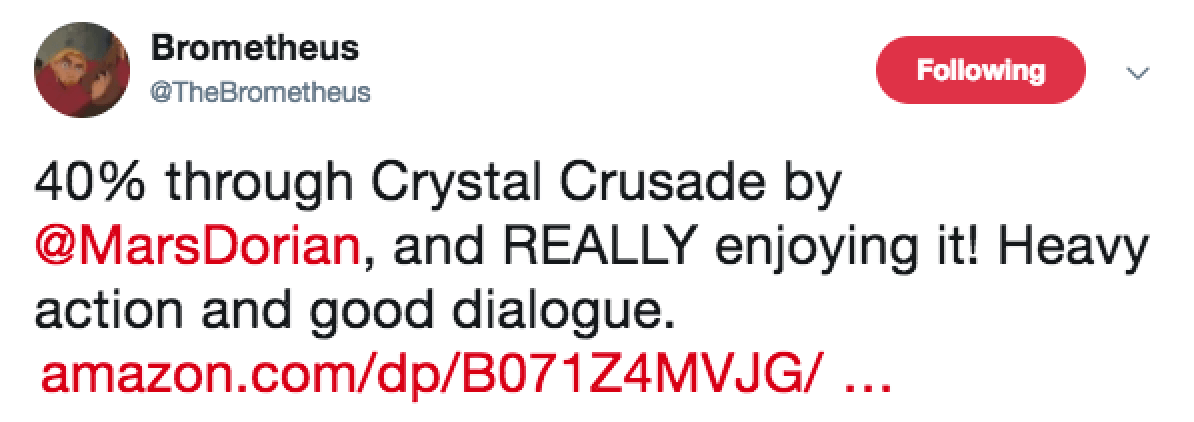
By Mars Dorian, {grow} Contributing Columnist
The Internet has allowed us to reach millions of customers, but that led to a side effect many fear: how do you sell a (digital) product in an overcrowded market?
After all, whether you sell e-books, courses, or content marketing, there will be competitors in your niche, and some of them will be better than you. Much, much better.
So what to do? Sob in quiet offline desperation? No.
Below, I want to share 3 lessons I’ve learned about selling in hungry markets with high competition.
1) People are addicted to the new (even if there’s nothing new at all)
A friend recently asked me how I was able to sell books when Amazon offers literally millions of them. He thought I was competing with all the books published on Amazon, but I wasn’t.
I’m ‘just’ competing with new releases.
You see, each year, thousands of new self-help books flood the market. Is there any need for them?
Technically, you have to read only a couple and you’d be set for life IF you follow their advice.
Books about positive thinking, living in the moment, self-discipline, productivity, habit building etc. already exist and have for decades. Heck, a book called “The Power of Now” became a 3 million+ bestseller even though the author’s basically repeating what the Buddha said thousands of years ago.
As studies have shown, people are addicted to the new and deem it better. If you want to serve a hungry market, don’t fear the abundance of products already available. Study them, learn from them, and know how to differentiate yourself.
Which brings us to the second point.
2) Same same but different
It’s often said that people like something completely different, but that’s only partly true. As mentioned in point 1, folks like new work but not if it’s completely different. Hungry markets have a certain expectation of your new product, and if you don’t deliver, they will shun or worse, rant about you.
Seth Godin once explained it beautifully; if you create a product by thinking outside the box, people tend to be confused. They don’t know how to place your product, and confused customers rarely buy. On the other side, if you think within the box, you create just another me-too product that’s hard to distinguish from the competition.
The goal then is to think at the edges of the box.
To understand the rules and break them where you see fit.
In genre fiction, that means understanding the tropes of your genre and then changing (some of them) to give the story a fresh take.
So when I write and release my sci-fi books, I make sure that I A) understand the genre tropes, so I can satisfy the science fiction reader base, and B) make the story different enough from the competition, so it stands out.
You have to find the right balance between meeting the expectations of your market and adding a new touch.
3) Likability is a distortion field. Make it work in your favor.
A few years ago, I plummeted into a career crisis. I was questioning my job choices, especially after I had scanned through amazing illustration work on Pinterest.
I asked myself–aren’t there enough good illustrators/writers out there?
(insert creative crisis here)
To solve the problem, I met with a creative friend in a tech cafe in the middle of hipsterhell Berlin. She revealed I lesson that I had ignored for most of my life:
Likability trumps skill.
People tend to like and share (art)work more if they know and like the creator. My friend admitted she wasn’t the best illustrator in the world, but because of her networking skills, she could draw from a large pool of (potential) clients. When she asked some of her customers why they had chosen her, they admitted they liked her and wanted to work with her.
Her art wasn’t the sole reason.
I’ve made a similar experience myself recently.
An avid reader followed me on Twitter. I didn’t know him, but I liked his tweets. We soon exchanged a couple of tweet-versations where we discovered our similarities. Soon after, he bought my latest sci-fi book. Then he updated me on how much he loved the book, even sharing the percentages he had read:

He gave me a 5-star review both on Goodreads and Amazon and even tweeted the book link to his followers. Talking about word of mouth. One of his followers bought the book and left a good review as well (‘only’ 4 stars this time:)

My author heart sang the ‘Ode to Joy’.
I’ve made similar experiences over the past years. People I ‘met’ on Facebook and Twitter bought books from me or hired me AFTER our conversations.
Your product and service of have to be good, but that alone won’t guarantee sales. Building genuine connections with like-minded people can make your products come across as better than they actually are. In an online world with overcrowded markets, that’s a big plus that can make all the difference.
I’m curious; what’s one big lesson you have learned from successfully selling products in overcrowded markets?
 Mars Dorian is an illustrating designer and storyteller. He crafts words and pictures that help clients stand out online and reach their customers. You can find his homebase athttp://www.marsdorian.com and connect with him on Twitter @marsdorian
Mars Dorian is an illustrating designer and storyteller. He crafts words and pictures that help clients stand out online and reach their customers. You can find his homebase athttp://www.marsdorian.com and connect with him on Twitter @marsdorianThe post 3 Timeless tips for selling your online product in an overcrowded market appeared first on Schaefer Marketing Solutions: We Help Businesses {grow}.
from {grow} http://feeds.feedblitz.com/~/457303634/0/markgrow~Timeless-tips-for-selling-your-online-product-in-an-overcrowded-market/
No comments:
Post a Comment